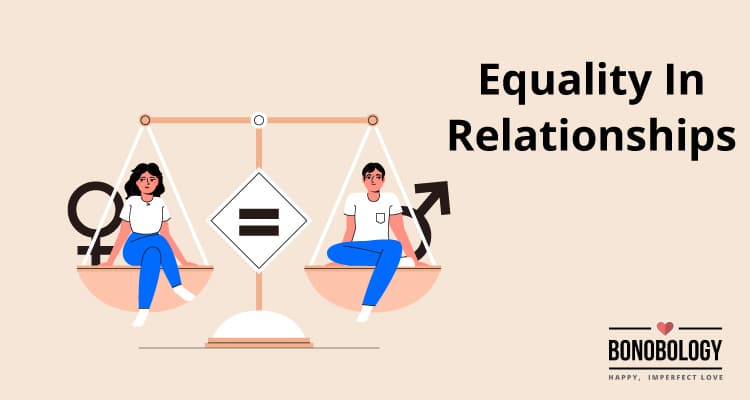
Exploring the Depths of Romantic Relationships: 20 Questions Every Young Person Should Consider
Romantic relationships are among the most important and complicated events in our life. They provide potential for personal growth, connection, and deep love, but they also provide obstacles that need careful consideration and meditation. To assist you negotiate the complexities of romantic relationships, I've produced a list of 60 thought-provoking questions on the psychology of love, attachment, and relationship dynamics. Each question is followed by choices and an explanation, with the correct answer listed at the conclusion. This method allows you to think about each question before confirming your comprehension.
1. Can being too similar to your partner harm a relationship?
Similarity in a relationship often brings comfort and shared experiences, which can be the foundation for strong connections. However, it raises an interesting question: can too much similarity actually be detrimental to a relationship? When partners are too alike, it may lead to stagnation or a lack of growth within the relationship. Think about the diversity of experiences that come from differences—how they can help you learn and grow together as a couple.
- Option A: Yes, it can lead to stagnation
- Option B: No, similarity strengthens the bond
- Explanation: While having common interests is beneficial, too much similarity can result in a lack of growth and excitement in the relationship. It's important to embrace differences to keep the relationship dynamic and stimulating.
2. Is it possible to love more than one person at the same time?
Love is often seen as a singular, all-encompassing emotion directed toward one person. But what happens when you find yourself feeling deep affection for more than one person? This scenario challenges traditional views of romantic love and forces us to reconsider the boundaries of emotional connections. It's essential to understand how love can be multifaceted, involving complex emotions that can be directed toward different people simultaneously.
- Option A: Yes, it's natural
- Option B: No, true love is exclusive
- Explanation: Love is a complex emotion that can be felt for multiple people simultaneously. Understanding this helps individuals navigate feelings of attraction and affection without unnecessary guilt or confusion.
3. Does arguing indicate an unhealthy relationship?
Many people assume that frequent arguments are a sign of a troubled relationship. But is that really the case? Arguments can be a natural part of any close relationship, reflecting differences in perspectives and emotions. The key is how these disagreements are handled. Can arguing actually be a sign of a healthy, communicative relationship rather than a toxic one? This question encourages us to rethink how we view conflict in romantic partnerships.
- Option A: Yes, arguments are harmful
- Option B: No, healthy arguments can strengthen the relationship
- Explanation: Disagreements are natural and can actually lead to stronger relationships when handled constructively. It’s not the argument itself, but how it is resolved, that determines its impact on the relationship.
4. Can spending too much time together be detrimental to a relationship?
Spending time together is often seen as a cornerstone of a strong relationship. But is there such a thing as too much togetherness? When partners spend excessive time together, it can sometimes lead to codependency, where individuals lose their sense of self. This question challenges the notion that more time together is always better and explores the importance of maintaining a healthy balance between shared time and personal space.
- Option A: Yes, it can lead to codependency
- Option B: No, it always strengthens the bond
- Explanation: While spending time together is important, too much time can lead to codependency, where individuals lose their sense of self. Maintaining some independence is key to a healthy relationship.
5. Are feelings of attraction to others while in a relationship normal?
It’s a common belief that once you’re in a committed relationship, you should no longer feel attracted to others. But is this expectation realistic? Human nature is complex, and feelings of attraction can naturally arise even when you’re deeply in love with your partner. How you handle these feelings is what truly matters, not whether they occur.
- Option A: Yes, it's a natural human experience
- Option B: No, it indicates something is wrong
- Explanation: It’s normal to feel attracted to others, even when you’re in a committed relationship. What matters is how you handle these feelings and whether they impact your primary relationship.
6. Is love purely an emotion, or does it involve a decision?
Love is often portrayed as a spontaneous and uncontrollable emotion that sweeps us off our feet. However, many relationship experts argue that love is also a conscious choice, requiring effort and commitment. This question explores the idea that love might not just be about feelings but also about the decisions we make to support, nurture, and prioritize our partner.
- Option A: Purely an emotion
- Option B: It involves a decision
- Explanation: Love involves both emotion and decision-making. While the initial feelings of love might be spontaneous, maintaining a relationship requires conscious choices and actions to support and nurture the bond.
7. Can long-distance relationships be stronger than close-proximity relationships?
Long-distance relationships are often seen as challenging, with distance being a major hurdle to overcome. But could the separation actually make the relationship stronger? Some couples find that the distance forces them to communicate more effectively and appreciate their time together more deeply. This question invites you to consider the potential strengths of long-distance relationships.
- Option A: Yes, they can develop deeper communication
- Option B: No, physical closeness is essential
- Explanation: Long-distance relationships can develop deeper communication skills and a stronger emotional connection as partners rely heavily on verbal and written communication to maintain their bond.
8. Is it better to be completely honest or to sometimes withhold the truth to protect your partner?
Honesty is widely regarded as a fundamental value in relationships. But are there times when withholding the truth might be more compassionate or protective? This question explores the delicate balance between honesty and the potential harm that certain truths might cause. It challenges us to think about whether complete transparency is always the best policy.
- Option A: Complete honesty is always better
- Option B: Sometimes withholding the truth is necessary
- Explanation: While honesty is crucial, there are situations where withholding certain information might protect your partner’s feelings or prevent unnecessary harm. The key is to balance honesty with empathy and understanding.
9. Do opposites really attract in relationships?
The saying "opposites attract" is commonly cited in discussions about relationships, suggesting that differences between partners can create a magnetic pull. But how true is this idea? Are relationships more successful when partners complement each other with their differences, or do shared values and similarities play a more critical role in long-term success? This question prompts reflection on what truly matters in a partnership.
- Option A: Yes, opposites complement each other
- Option B: No, shared values are more important
- Explanation: While differences can be exciting and lead to growth, shared values are generally more important for long-term relationship success. Common ground in core beliefs and life goals often provides a stronger foundation.
10. Can jealousy ever be beneficial in a relationship?
Jealousy is often seen as a negative emotion that can lead to destructive behavior in relationships. However, could there be situations where jealousy is actually beneficial? For instance, can it serve as a wake-up call that prompts partners to address issues or reaffirm their commitment to each other? This question examines the dual nature of jealousy and its potential role in relationships.
- Option A: Yes, it can show you care
- Option B: No, it's always harmful
- Explanation: Jealousy can sometimes highlight areas of insecurity or issues that need to be addressed in the relationship. However, it’s important to manage jealousy in a healthy way to prevent it from becoming destructive.
11. Does having a "type" limit your potential for finding a compatible partner?
Many people have a specific "type" they are attracted to, whether based on physical appearance, personality traits, or other factors. But could this preference limit your chances of finding a truly compatible partner? By focusing too narrowly on certain characteristics, you might miss out on someone who could be an even better match in ways you hadn’t considered.
- Option A: Yes, it can lead to missing out on great matches
- Option B: No, knowing your type helps in choosing partners
- Explanation: Having a "type" can sometimes limit your opportunities to meet compatible partners who might not fit your usual preferences but could offer a fulfilling relationship. It’s important to stay open to different possibilities.
12. Is falling out of love a sign that the relationship should end?
Relationships often go through phases, and feelings of love can fluctuate over time. But what should you do if you find yourself falling out of love? Is it a sign that the relationship is over, or could it be an opportunity to rekindle the connection and rediscover each other? This question explores the complexity of love and the idea that it might be possible to fall back in love with your partner.
- Option A: Yes, it’s time to move on
- Option B: No, love can be rekindled
- Explanation: Falling out of love doesn’t necessarily mean the relationship is over. Relationships require effort, and it’s possible to rekindle love through communication, shared experiences, and renewed commitment.
13. Can taking a break in a relationship help it grow stronger?
The idea of taking a break from a relationship is often met with skepticism, as it can be seen as a step toward separation. However, some couples find that a break allows them to gain perspective, reflect on their relationship, and come back together stronger than before. This question challenges the assumption that taking a break is always a negative move and considers the potential benefits.
- Option A: Yes, it allows for reflection and growth
- Option B: No, it often leads to a permanent breakup
- Explanation: Taking a break can provide the space needed for personal reflection and growth, which might lead to a stronger relationship if both partners use the time constructively.
14. Are relationships built on passion more likely to last than those built on friendship?
Passionate love is often romanticized as the ultimate goal in relationships, but is it the key to long-term success? Alternatively, relationships that start with a strong foundation of friendship may lack the initial intensity but can offer stability and deeper connection over time. This question invites you to consider whether passion or friendship is more critical for lasting love.
- Option A: Yes, passion is key to longevity
- Option B: No, friendship is the foundation of lasting love
- Explanation: While passion is important, relationships built on friendship tend to have greater longevity and resilience, as they are based on mutual respect, understanding, and shared experiences.
15. Can too much independence in a relationship create distance?
Independence is often praised as a healthy quality in relationships, allowing partners to maintain their individuality and personal growth. But is it possible for too much independence to create emotional distance and weaken the connection between partners? This question explores the balance between independence and interdependence in a relationship.
- Option A: Yes, it can lead to disconnection
- Option B: No, independence keeps the relationship healthy
- Explanation: While independence is important, too much can create emotional distance. A healthy relationship balances independence with interdependence, where both partners support and rely on each other.
16. Is it possible for a relationship to thrive without physical intimacy?
Physical intimacy is often seen as a crucial component of romantic relationships. However, some couples may place greater emphasis on emotional or intellectual connections. Can a relationship thrive without regular physical intimacy, or is it an essential element for a fulfilling partnership?
- Option A: Yes, emotional connection can be enough
- Option B: No, physical intimacy is essential
- Explanation: While physical intimacy is important, some couples find that a strong emotional or intellectual connection can sustain their relationship, especially during periods when physical intimacy might not be possible.
17. Does being in love with someone mean you’re always happy with them?
The idea of being in love often conjures images of constant happiness and contentment. But is this realistic? Even in the most loving relationships, there will be times of frustration, disagreement, and dissatisfaction. This question encourages us to challenge the notion that love equals perpetual happiness and to consider the ups and downs that are part of any long-term relationship.
- Option A: Yes, true love means constant happiness
- Option B: No, love includes ups and downs
- Explanation: Love is not a constant state of happiness. Even in strong relationships, there are challenges and difficult times. The key is to work through these moments together and continue to grow as a couple.
18. Can a relationship survive without mutual goals and ambitions?
Having shared goals and ambitions is often seen as a cornerstone of a strong relationship. But what happens when partners have different visions for the future? Can a relationship still thrive if each person is pursuing their own path, or are mutual goals essential for long-term success?
- Option A: Yes, as long as there’s love
- Option B: No, shared goals are necessary
- Explanation: Shared goals and ambitions are often critical for the longevity of a relationship, as they provide a common direction and purpose. Without them, partners may drift apart over time.
19. Is it healthy to rely on your partner to fulfill all your emotional needs?
Romantic relationships are often depicted as the ultimate source of emotional fulfillment. However, is it realistic or healthy to expect one person to meet all your emotional needs? This question explores the importance of having other sources of support, such as friends, family, or hobbies, to maintain a balanced and healthy relationship.
- Option A: Yes, they should be your main support
- Option B: No, it's important to have other sources of support
- Explanation: While your partner can be a significant source of emotional support, relying on them exclusively can lead to unhealthy dynamics. It’s important to have a broader support network to maintain balance and well-being.
20. Can the power dynamics in a relationship be equal, or is one partner always more dominant?
Power dynamics in relationships can be complex, with one partner often taking a more dominant role. But is it possible for power to be truly equal in a relationship, or will one person always have more influence? This question challenges us to consider how power is shared and negotiated in healthy partnerships.
- Option A: Power dynamics can be equal
- Option B: One partner is always more dominant
- Explanation: Power dynamics can be balanced in a healthy relationship, where both partners share responsibilities and influence decisions equally. However, achieving this balance requires ongoing communication and mutual respect.
Answer Key:
- Yes, it can lead to stagnation
- Yes, it's natural
- No, healthy arguments can strengthen the relationship
- Yes, it can lead to codependency
- Yes, it's a natural human experience
- It involves a decision
- Yes, they can develop deeper communication
- Sometimes withholding the truth is necessary
- No, shared values are more important
- It depends on how it's managed
- Yes, it can lead to missing out on great matches
- No, love can be rekindled
- Yes, it allows for reflection and growth
- No, friendship is the foundation of lasting love
- Yes, it can lead to disconnection
- Yes, emotional connection can be enough
- No, love includes ups and downs
- No, shared goals are necessary
- No, it's important to have other sources of support
- Power dynamics can be equal
This exploration of relationship dynamics and psychological insights provides valuable perspectives on what it takes to build and maintain healthy, fulfilling romantic relationships. By considering these questions, young people can gain a deeper understanding of the complexities of love and be better equipped to navigate the challenges they may encounter.









